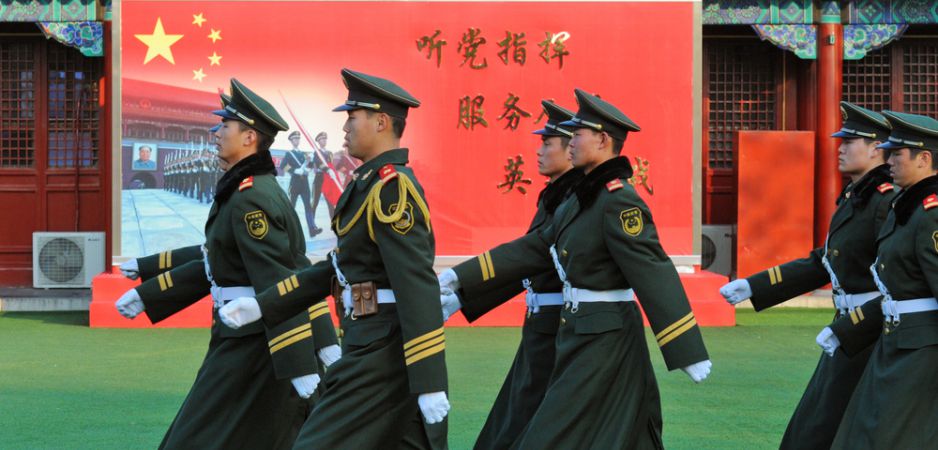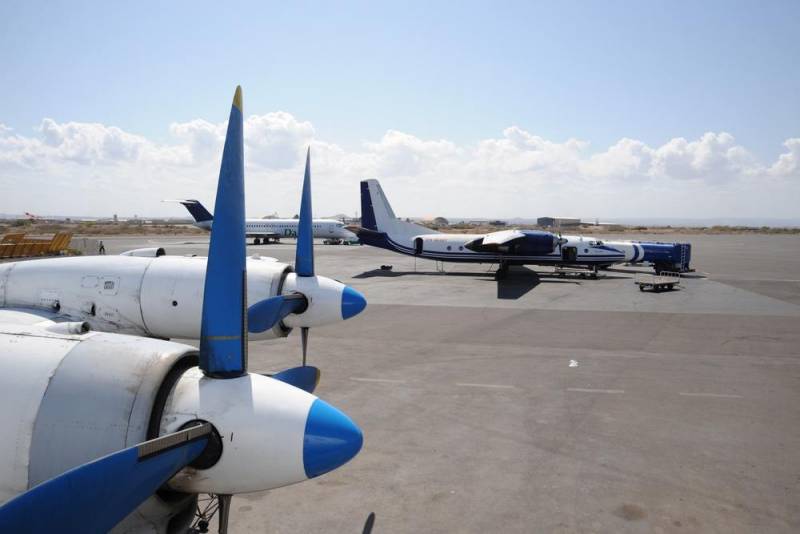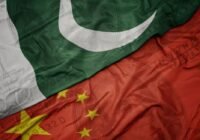China is negotiating the building of a military base in Djibouti—the latest sign that Beijing has started to flex its military muscle.
“I see only one country in the world that has a global strategy today, and it’s not America. It’s China,” remorselessly quipped Ian Bremmer, president of the Eurasia Group, during a conference on May 27. His scathing remarks were part of a wide-ranging conversation on China’s rise and the threats posed by what he dubbed an “incoherent America.” But are such fear-mongering thoughts warranted? Sadly, they are.
Under the leadership of President Xi Jinping, China has embarked on a global war for the economic hearts and minds of leaders worldwide, as part of the so-called Silk Road Economic Belt and the Maritime Silk Road Initiative. This $140 billion plan aims at building a sphere of economic influence, targeting trade routes all the way from the east coast of China to the Middle East, up through Europe and East Africa, before heading back to Central Asia and Russia. Although China continues to insist this plan is only meant to benefit the economies of these regions, the May 10 announcement by Djibouti’s President Ismail Omar Guelleh that talks with China were focusing on the development of a Chinese military base in Obock, a northern port, suggest otherwise.
Strategically, Djibouti plays an important role for the United States: The country is fairly stable and well-positioned between Yemen and Somalia, making it an ideal place to deploy American covert anti-terrorism operations from the largest US military base in Africa, Camp Lemonnier. Even so, Washington has been slow to reply to China’s growing presence in the country. While the February 2014 strategic defense agreement between China and Djibouti, which allowed the Chinese navy to use Djibouti as a port, saw an angered response from the US, since Guelleh’s announcement that China will significantly upgrade its military presence in the country, Washington has been oddly quiet.
Djibouti Calling
In an interview with AFP, Guelleh sought to defend his moves by declaring that “France’s presence is old, and the Americans found that the position of Djibouti could help in the fight against terrorism in the region. The Japanese want to protect themselves from piracy, and now the Chinese also want to protect their interests, and they are welcome.” How the Chinese intend to expand their maritime influence, and how much power they will eventually obtain in Africa at Washington’s expense will be clearly determined by their future actions in Djibouti.
Rep. Randy Forbes, chairman of the sea power subcommittee of the House Armed Services, issued a statement on May 11 alerting the US to the fact that “China’s determination for permanent bases far outside their traditional area of influence should remind Washington that Beijing sees itself as a global power.”
The US should take note of these developments, as all the evidence shows that Xi Jinping’s China is determined to widen its sphere of influence. The big question over the next decade thus becomes how the US will accommodate a resurgent China, especially as its presence grows in traditionally Western allies such as Djibouti.
Over the past ten years, China has committed itself to billions of dollars in aid on the African continent. However, these seemingly altruistic projects have had vast beneficial consequences for China, rather than the region itself. The heavily collateralized loans, which are what Chinese “aid” essentially comes down to, have put Beijing in control of the political destinies of many of its African trade partners. As the New Silk Road initiatives shift into higher gear, with Beijing buying and investing its way into obtaining political and military leverage in Africa, China is bound to become the heaviest player in the region.
Many leading experts, including Kevin Rudd, Asia Society Institute president, and Dean Cheng, Heritage Foundation’s research fellow on Chinese political and security affairs, believe that a cooperative approach led by Washington focusing on the areas the two powers have in common will foster a better and more equitable relationship. In these terms, the US still needs to prioritize security interests, especially in areas that are dominated by China, but it must do so without antagonizing Beijing.
Human Rights Abuses
However, while maintaining their collective approach, Western powers also need to keep in check China’s neocolonial ambitions. Not only has Beijing managed to secure itself a foothold in one of the most strategically important countries in Africa, but it has also showed a blatant disregard for the human rights abuses committed by local rulers all throughout the continent. Worse, a rise in Chinese investment has not translated to improved living conditions or better human rights standards for the African populations.
This final act, of condoning human rights abuses is, unfortunately, not just a Chinese staple.
US Secretary of State John Kerry visited Djibouti early this May and happily shook hands with President Guelleh, a three-time president known to have committed numerous human rights violations. The US State Department, along with other nongovernmental organizations, has repeatedly detailed these abuses, producing a report that found the Djiboutian regime is depriving its citizens from any basic influence over their government.
The fact America is turning a blind eye to such abuses must not go unnoticed. In order for the US to have any power of persuasion, Washington needs to practice what it preaches and start addressing these issues. Why? Because by doing so, the US would occupy the moral high ground needed to counter China’s amoral way of doing politics.
As the New Silk Road plan clearly shows, the idea for only the US to take a leading position in global affairs is proving to be nothing more than wishful thinking, as Beijing is not backing down from occupying the space left open by Washington and does not shy away from encroaching on its strategic allies. Currently, China is winning this symbolic war against the United States, as Beijing has expanded its control above and beyond that of its immediate geographical area, all the while following the same clear strategic plan.
The US needs to address China’s growing power by implementing a global strategy of its own without antagonizing the Asian tiger.
The views expressed in this article are the author’s own and do not necessarily reflect Fair Observer’s editorial policy.
Photo Credit: Hung Chung Chih / Free Wind 2014 / Shutterstock.com
 We bring you perspectives from around the world. Help us to inform and educate. Your donation is tax-deductible. Join over 400 people to become a donor or you could choose to be a sponsor.
We bring you perspectives from around the world. Help us to inform and educate. Your donation is tax-deductible. Join over 400 people to become a donor or you could choose to be a sponsor.
Support Fair Observer
We rely on your support for our independence, diversity and quality.
For more than 10 years, Fair Observer has been free, fair and independent. No billionaire owns us, no advertisers control us. We are a reader-supported nonprofit. Unlike many other publications, we keep our content free for readers regardless of where they live or whether they can afford to pay. We have no paywalls and no ads.
In the post-truth era of fake news, echo chambers and filter bubbles, we publish a plurality of perspectives from around the world. Anyone can publish with us, but everyone goes through a rigorous editorial process. So, you get fact-checked, well-reasoned content instead of noise.
We publish 3,000+ voices from 90+ countries. We also conduct education and training programs
on subjects ranging from digital media and journalism to writing and critical thinking. This
doesn’t come cheap. Servers, editors, trainers and web developers cost
money.
Please consider supporting us on a regular basis as a recurring donor or a
sustaining member.
Will you support FO’s journalism?
We rely on your support for our independence, diversity and quality.









Comment
Djibouti is strategically situated and that in and of itself is sufficient reason for the Chinese to want a base there. And as the conflict that is raging in Yemen could well affect Chinese merchant vessels, there is a need for the Chinese to have a local base. The Chinese’s inability to dock anywhere in the region when they had to extract their citizens from Yemen further spurred them to seek a base at Djibouti.
U.S decline? That’s a bit of a far stretch and exaggeration don’t you think?
The Chinese involvement with Djibouti merely reflects the Gulf of Aden and Bab el Mandeb Strait’s importance to world trade and the need for the Chinese to thwart pirates and militants from Somalia and Yemen respectively.
To say it signifies a U.S decline is a bit dramatic to be honest.